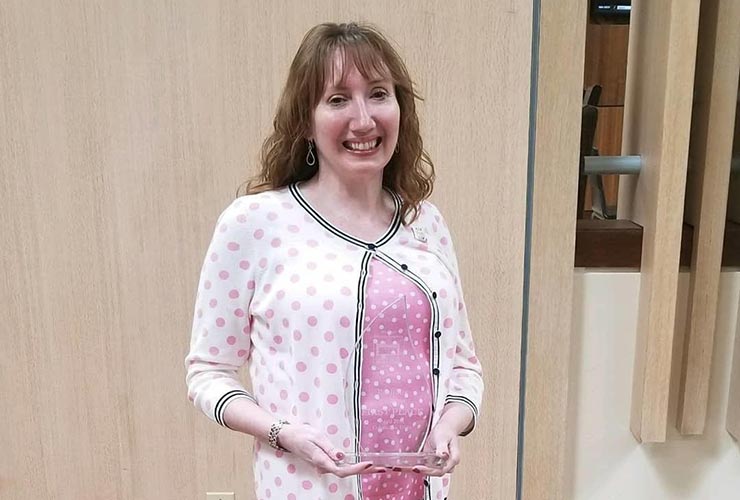
Congratulations to Lisa Conley Yungblut for winning the 2018 Ohio Court Reporters Association’s Realtime Contest!
The contest occurred at the OCRA’s 2018 Annual Conference, April 13-15, 2018, at the Marriott Columbus Northwest in Dublin, Ohio.
There were many other excellent court reporters that participated in the contest. We also want to congratulate the others who attained the 96% accuracy or greater!
This is the second time she won. She won first place in the Ohio Court Reporters Association’s Realtime Contest in 2005.
According to the NCRA (National Court Reporters Association): “Realtime reporters are highly trained professionals who share a unique ability to convert the spoken word into English text instantly into a feed that can be read, streamed, broadcast, searched, and archived.”
For those of you who have experienced realtime reporting in a deposition or another setting, you have been able to instantaneously follow along with what the court reporter has transcribed on a computer, tablet, or mobile device. It is an excellent way for attorneys to follow along and reference what has been said. In other settings, court reporters who provide realtime assist those in other industries and institutions to be able to read what has been spoken. This is called CART (Communication Access Realtime Translation) and is similar to the closed captioning seen on television.
As you can imagine, those who provide realtime should have an extremely high degree of accuracy. They are some of the best of the best in the court reporting industry.
THE TESTING CRITERIA FOR THE CONTEST (from the OCRA website):
There were two different five minute tests in the contest:
Literary: 200 words per minute
Q&A: 225 words per minute
QUALIFYING (from the OCRA website):
“Only one transcription will be permitted of each leg. 96% and higher qualifies. In order to qualify, contestant must write realtime into a computer and, without editing, at the direction of a testing monitor, create an ASCII/text file and/or a PDF onto a diskette, CD/DVD, or a USB flash drive. Those unable to produce such a file within five minutes of such request may be disqualified at the discretion of the contest chair. After verification of the file, the contestant will be required to delete all components of the file, including any audio, from hard drive and recycle bin.
Realtime may be in either ALL CAPS or mixed case. Two-voice testimony can be transcribed in either Q&A format, colloquy, or by using chevrons or some other new speaker designation as long as the change of speaker is clearly obvious. Neither the Q or A will be counted nor read. Punctuation errors will apply irrespective of speaker format. No transcript will be eligible for consideration with less than 96 percent accuracy.”
If you’d like to learn more about the contest, visit the OCRA Realtime Awards page.
Lisa Conley Yungblut is a great example of occasionally stepping outside of your daily routine to use your skills and share your knowledge. From competing in contests to volunteering to use her skills for good causes to contributing back to the industry, she goes above and beyond the normal routine of a court reporter.
Lisa regularly writes articles published on our blog that are relevant to court reporters and other legal professionals. In many of the articles, Lisa encourages other court reporters to find ways that they can excel in their careers and to give back to the industry and community.
If you’d like to read some of Lisa’s articles, you may reference them here.
Congratulations, Lisa!